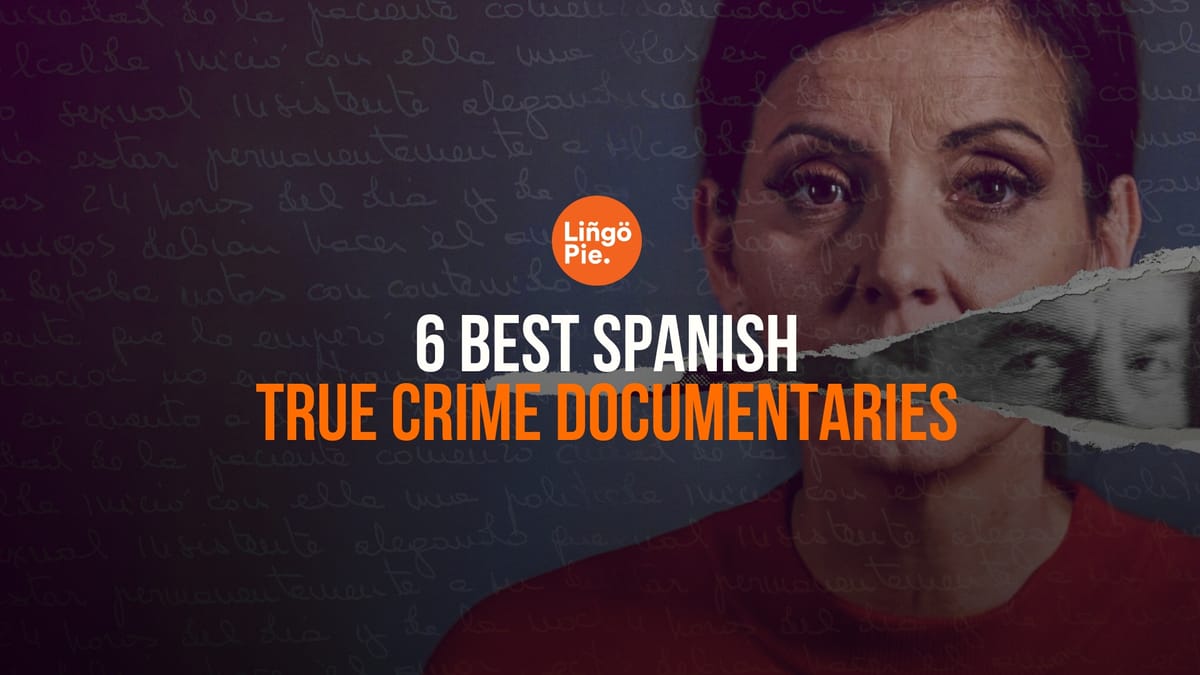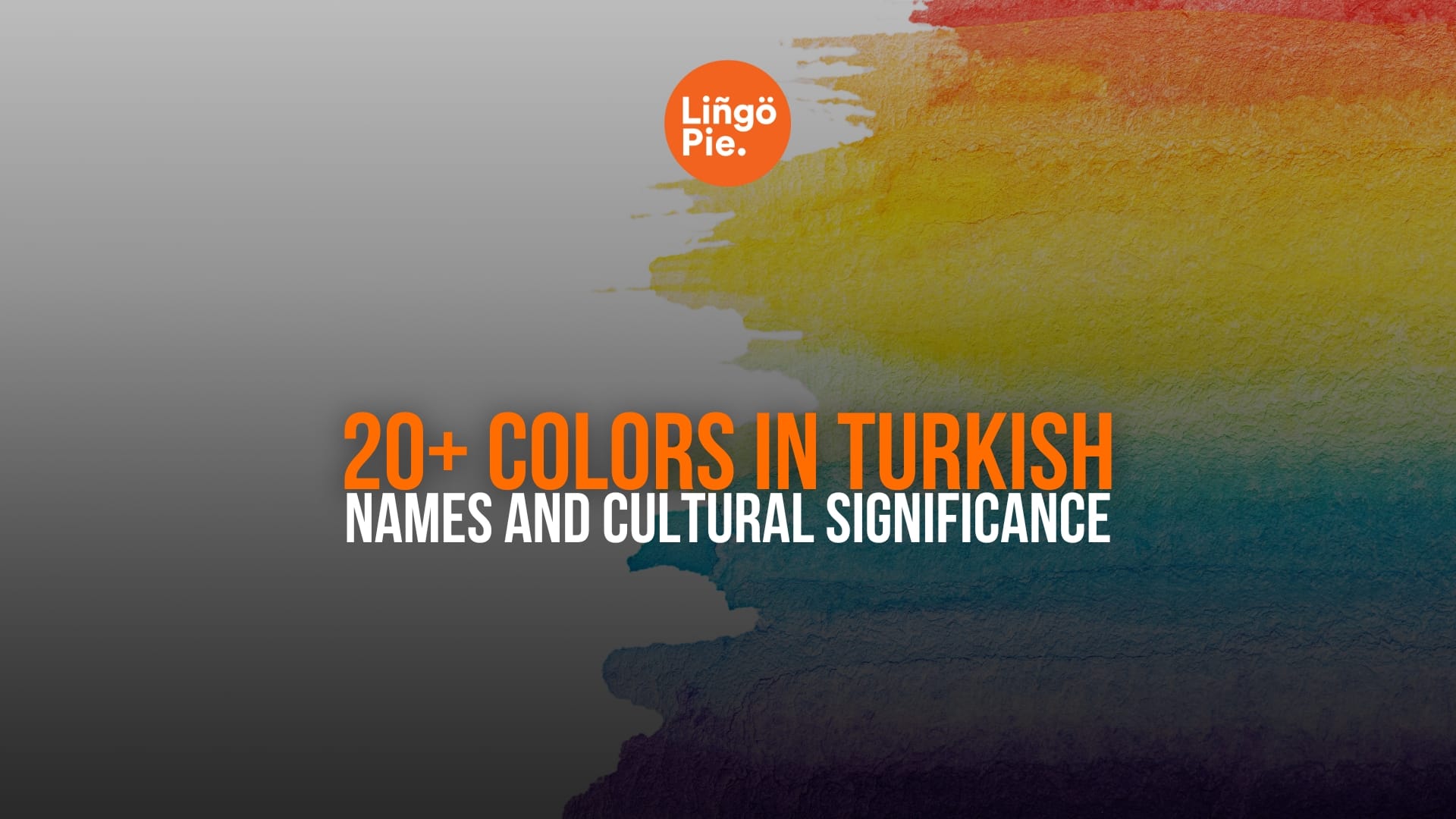Tired of conjugating verbs and memorizing flashcards? We hear you! While textbooks and language apps have their place, there’s a more captivating way to level up your Spanish skills: true crime documentaries!
Netflix's collection of Spanish true crime documentaries offers an immersive language experience that feels nothing like studying. These compelling real-life stories provide authentic exposure to the language as it's actually spoken—complete with regional accents, colloquialisms, and cultural context you won’t find in traditional learning resources.
- What’s The Best Way To Learn Spanish? [5 Best Tips]
- 3 Rules For Using Spanish Accent Marks: [Guide]
- 10 Best Spanish Short Stories For Beginners

Why Crime Documentaries Make Perfect Language Learning Material
True crime documentaries work brilliantly for language learning because they:
- Feature real people speaking naturally, not actors following scripts
- Include various speech styles (formal interviews, emotional testimonies, journalistic reporting)
- Provide rich cultural context about Spanish-speaking societies
- Keep you genuinely engaged with compelling storytelling
Even better? With the Lingopie you can transform these documentaries into powerful learning tools. Lingopie lets you view interactive subtitles, save vocabulary, and practice pronunciation as you watch! Now that’s what we call productive viewing!
Spanish True Crime Documentaries On Netflix
The Alcàsser Murders

This five-part Netflix documentary series explores the shocking 1992 case of three teenage girls who were kidnapped, murdered, and found in a remote area near Alcàsser, Spain. Through new interviews and modern evidence analysis, the series examines the brutal crime itself and the intense media frenzy it created.
This documentary exposes Spanish learners to formal journalistic Spanish and legal terminology. You’ll hear various Spanish dialects from different regions as witnesses, family members, and experts share their perspectives. The formal nature of court proceedings and police interviews also offers excellent practice with structured, professional Spanish.
Playing Card Killer

This three-part docuseries follows the case of Alfredo Galán, who terrorized Madrid in 2003 by leaving playing cards at murder scenes, earning him the nickname "The Playing Card Killer." The series examines how this former military man's crimes sparked widespread fear throughout Spain and created a media sensation.
The documentary provides Spanish learners with authentic crime investigation terminology and media reporting vocabulary. You'll hear everyday Madrid Spanish dialects and expressions, along with the more formal language used in police interviews and courtroom settings. The varied speaking styles make this an excellent resource for understanding different speech patterns in Spanish conversation.
Cooking Up Murder

This three-part docuseries investigates the case of César Román, nicknamed "The King of Cachopo," a Spanish chef who built a career in the spotlight through false identities before being convicted of murdering his girlfriend, Heydi Paz, in 2018. The series follows the investigation, media coverage, and trial that captivated Spain.
This documentary offers culinary vocabulary alongside legal and investigative terminology for language learners. You’ll hear contemporary Spanish as spoken in Madrid’s restaurant scene and formal courtroom Spanish.
800 Meters

This powerful three-part documentary examines the 2017 terrorist attacks in Barcelona and Cambrils, where a van drove 800 meters down La Rambla before a second attack occurred hours later. The series investigates how young people who appeared well-integrated into Spanish society became radicalized and explores the aftermath of these tragic events.
Language learners will benefit from the documentary's exploration of complex social issues in Spanish, exposing you to vocabulary related to terrorism, security, and social integration. You'll hear Catalan-influenced Spanish from Barcelona alongside standard Castilian Spanish, providing valuable exposure to regional accents. The emotional testimonies from survivors and officials offer authentic, heartfelt Spanish expressions that rarely appear in textbooks.
Carmel: Who Killed María Marta

This riveting documentary explores one of Argentina’s most famous unsolved crimes - the 2002 death of María Marta García Belsunce, initially ruled an accident until an autopsy revealed she had been shot multiple times. The series examines the investigation’s missteps, suspicious family behavior, and the high-profile trial that captivated Argentina.
Spanish learners will encounter Argentinian Spanish, which has a distinctive accent and unique vocabulary different from European Spanish. The documentary features complex legal terminology and formal journalistic reporting alongside emotional family interviews, exposing various language registers and speech patterns in a compelling real-world context.
Where is Marta?

This gripping documentary investigates the 2009 disappearance of Spanish teenager Marta del Castillo, whose body was never found despite multiple confessions. The series examines the labyrinthine investigation, controversial trial, and the ongoing quest by Marta’s family to find her remains and achieve justice.
For language learners, this documentary provides excellent examples of contemporary Spanish spoken by younger generations, including colloquial expressions and slang. You’ll hear Andalusian accents from Seville alongside standard Spanish, giving valuable exposure to regional differences.
Nevenka: Breaking The Silence

This chilling documentary tells the story of Nevenka Fernández, who in 2002 became the first Spanish woman to win a sexual harassment case against a politician. The series explores her courageous fight against her former boss, small-town mayor Ismael Álvarez, and the public backlash she endured.
Spanish learners will benefit from the documentary’s focus on legal terminology, formal political speech, and emotional personal testimonies. The series provides excellent examples of how Spanish is used to discuss sensitive social issues, gender politics, and workplace dynamics.
Spanish Vocabulary From True Crime Documentaries
These documentaries will expose you to authentic Spanish vocabulary that goes well beyond basic conversational phrases. You'll encounter legal terminology, journalistic expressions, and emotionally charged language that native speakers actually use when discussing serious topics.
Here's a sampling of valuable vocabulary you'll encounter while watching these compelling documentaries:
| Spanish Term | English Translation |
|---|---|
| el caso | the case |
| el testigo/la testiga | witness |
| la evidencia | evidence |
| el sospechoso/la sospechosa | suspect |
| la declaración | statement/testimony |
| el juicio | trial |
| el culpable | guilty person |
| la víctima | victim |
| la investigación | investigation |
| el detective/la detective | detective |
| el asesino/la asesina | murderer/killer |
| desaparecer | to disappear |
| el secuestro | kidnapping |
| el fraude | fraud |
| la coartada | alibi |
| la sentencia | sentence |
| la fiscalía | prosecutor's office |
| el testimonio | testimony |
| la audiencia | hearing |
| la confesión | confession |
By encountering these words in the context of gripping real-life stories, you'll find they stick in your memory far better than if you'd learned them from a vocabulary list. The emotional impact of these narratives creates powerful memory anchors for new vocabulary.
Ready To Learn Spanish?
Don’t let another day of boring Spanish practice slip by! With Lingopie and these captivating true crime documentaries, you’re not just watching—you’re actively building fluency while being thoroughly entertained.
Whether you’re intrigued by the formal courtroom language in "The Alcàsser Murders" or the distinctive Argentinian accent in "Carmel: Who Killed María Marta," each documentary offers a unique language learning opportunity wrapped in an unforgettable story.
The best part? You'll find yourself so absorbed in these real-life mysteries that you'll forget you're actually studying. Before you know it, you’ll catch Spanish phrases and understand conversations without reading the subtitles.
So grab your detective notebook and fire up Lingopie—your journey to Spanish fluency just got a whole lot more thrilling! Start your free trial today and discover how addictive (and effective) learning Spanish can really be.
FAQs About Spanish True Crime on Netflix
What are some Spanish crime documentaries on Netflix?
Netflix offers gripping Spanish crime docs like The Alcàsser Murders and Carmel: Who Killed Maria Marta?, rich in real-life intrigue and cultural context.
What’s the best true crime documentary right now?
The Alcàsser Murders stands out for its chilling story and emotional impact, especially for those interested in Spain’s media and justice system.
Is there a good crime story on Netflix in Spanish?
Yes—Carmel and Killer Ratings are binge-worthy picks that deliver suspense and insight into Latin American crime cases.
Which Netflix series is based on a real serial killer?
The Beast: Catching a Killer dives into the pursuit of one of Mexico’s most infamous murderers, offering a raw look at the investigation.
What’s the best Netflix series based on a true story?
If you’re after realism and drama, Nisman: The Prosecutor, the President, and the Spy is a standout, packed with political intrigue and mystery.







![19 Best Spanish Series For Learning Spanish Fast [2026]](/blog/content/images/size/w300/2025/04/best-shows-to-watch-to-learn-spanish.jpg)

